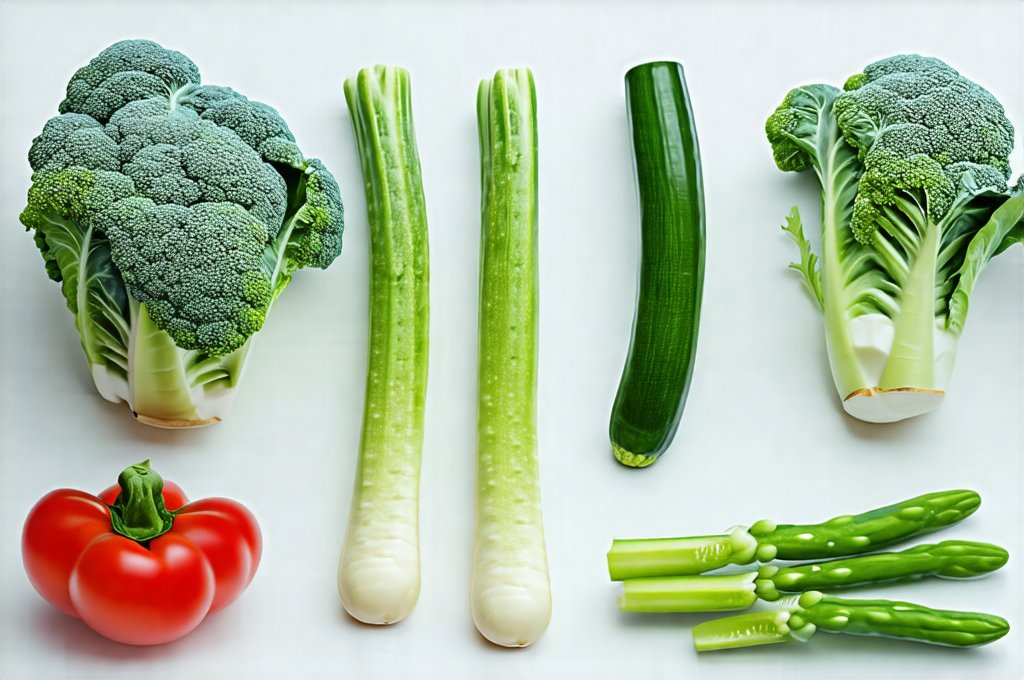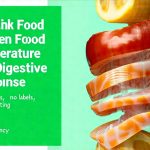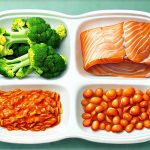Many people experience digestive discomfort after eating cold, raw vegetables – bloating, gas, cramping, even diarrhea. It’s often dismissed as simply being “sensitive” or having a “weak stomach,” but the reasons behind this reaction are surprisingly complex and multifaceted, extending beyond simple food intolerance. While enjoying a crisp salad or crunchy carrot sticks seems like a healthy choice (and generally is for many), the way our digestive system processes these foods differs significantly depending on their temperature and state – raw versus cooked. Understanding why your gut might object to cold raw vegetables involves delving into the mechanics of digestion, the role of enzymes, and individual sensitivities that can vary widely from person to person. It’s about recognizing that a healthy diet isn’t one-size-fits-all; it’s tailored to our unique physiological needs.
The digestive process is far more than just breaking down food; it’s a complex orchestration involving mechanical action, chemical reactions facilitated by enzymes, and the vibrant ecosystem of gut bacteria. Cold temperatures can slow down these processes. Raw vegetables, while nutrient-rich, contain complex carbohydrates – like cellulose in plant cell walls – that are harder for our bodies to break down without prior preparation (like cooking). Furthermore, cold foods require your body to expend energy warming them up to body temperature within the digestive tract, potentially diverting resources from optimal digestion. This can lead to incomplete breakdown of food and subsequent discomfort. The state of someone’s overall gut health – whether it’s robust or compromised – will also significantly influence their ability to tolerate these factors. If you suspect a deeper issue, learning about gut bacteria imbalance might be helpful.
Digestive Slowdown & Enzyme Activity
The human body maintains a core temperature for optimal function, and the digestive system is no exception. When cold food enters the system, the body must expend energy to warm it up before efficient digestion can occur. This process slows down overall digestive transit time – how quickly food moves through your gut – potentially leading to fermentation and gas production as undigested carbohydrates linger longer in the colon. Think of it like trying to start a car engine on a freezing morning; it takes more effort and doesn’t run as smoothly until warmed up. This effect is magnified with raw vegetables because of their inherent density and structural complexity.
Enzymes are the workhorses of digestion, each specialized to break down specific components of food. For example, amylase breaks down starches, protease breaks down proteins, and lipase breaks down fats. However, enzyme activity is also temperature-dependent. Cold temperatures reduce enzymatic efficiency. While your body does have mechanisms to compensate, this reduction can be significant enough to hinder the breakdown of complex carbohydrates found in raw vegetables. This incomplete digestion results in undigested food reaching the large intestine where gut bacteria then attempt to ferment it, producing gas and potentially causing bloating or discomfort. It’s important to consider if you react to healthy foods as well.
Moreover, individuals with pre-existing digestive conditions – like Irritable Bowel Syndrome (IBS) or Small Intestinal Bacterial Overgrowth (SIBO) – may be particularly sensitive to these effects. Their digestive systems are already compromised, making them less equipped to handle the extra stress of cold, hard-to-digest foods. It’s crucial to remember that this isn’t necessarily a sign of illness; it could simply indicate heightened sensitivity and a need for dietary adjustments.
The Role of Gut Microbiota
The gut microbiota – the trillions of bacteria residing in your digestive tract – plays a pivotal role in overall health, including digestion. A healthy gut microbiome is diverse and balanced, assisting with food breakdown, nutrient absorption, and immune function. However, cold raw vegetables can sometimes disrupt this delicate balance, especially in individuals with dysbiosis (an imbalance in the gut microbiota).
- When undigested carbohydrates reach the colon due to slowed digestion from cold temperatures, they become a feast for certain bacteria.
- This leads to increased fermentation and gas production, potentially exacerbating bloating and discomfort.
- Some bacterial strains thrive on these undigested carbs while others are suppressed, further contributing to dysbiosis over time.
The composition of your gut microbiome is highly individual, influenced by genetics, diet, lifestyle, and medication use (like antibiotics). Someone with a less diverse or imbalanced microbiome might be more susceptible to discomfort from cold raw vegetables than someone with a robust and balanced one. Probiotic-rich foods or supplements can sometimes help support a healthier microbiome but addressing the underlying causes of dysbiosis is often necessary for long-term improvement. Understanding weekend habits and their impact on your gut can also be beneficial.
Histamine Intolerance & Vegetable Content
Histamine intolerance is another factor that can contribute to reactions from certain vegetables, particularly when raw. Histamine is naturally present in many foods, and our bodies usually have enzymes (like DAO – diamine oxidase) to break it down effectively. However, some individuals experience histamine intolerance due to a deficiency in these enzymes or an overproduction of histamine-releasing foods.
- Certain raw vegetables, like spinach, tomatoes, and eggplant, are naturally higher in histamine or contain compounds that trigger histamine release in the body.
- Cold storage can further increase histamine levels in some vegetables.
- When someone with histamine intolerance consumes these vegetables, it can lead to a range of symptoms including digestive issues, headaches, skin rashes, and even anxiety.
It’s important to note that histamine intolerance is often difficult to diagnose and requires assessment by a healthcare professional. Elimination diets, guided by medical advice, are sometimes used to identify trigger foods.
Individual Sensitivity & Digestive Health
Ultimately, the degree to which your gut reacts to cold raw vegetables depends on your individual digestive health and sensitivity. Some people can effortlessly digest them without issue, while others experience significant discomfort. Factors like genetics, stress levels, sleep quality, and overall diet all play a role in determining your tolerance. Chronic stress, for example, can negatively impact digestion and increase gut permeability, making you more sensitive to food reactions.
Here’s how to approach identifying potential sensitivities:
1. Keep a Food Diary: Meticulously track what you eat, when you eat it, and any symptoms you experience afterward.
2. Elimination Diet (with guidance): Temporarily remove suspected trigger foods (like cold raw vegetables) from your diet for a period of time, then reintroduce them one at a time to see if symptoms return. Do not attempt this without professional guidance.
3. Consider Gut Health Support: Explore strategies like probiotic-rich foods, fermented foods, and stress management techniques to support overall gut health.
It’s vital to remember that these are general observations and should not replace the advice of a qualified healthcare provider. If you consistently experience digestive discomfort, it’s essential to consult with a doctor or registered dietitian to rule out underlying medical conditions and develop a personalized dietary plan. It may also be helpful to understand why your child’s gut trouble if this is impacting younger family members.
Cooking as a Pre-Digestive Step
One effective way to mitigate the challenges posed by cold raw vegetables is – unsurprisingly – cooking. Cooking softens plant cell walls, making carbohydrates more accessible for enzymatic breakdown. It essentially pre-digests some of the food for you, reducing the burden on your digestive system. For example, cooked carrots are far easier to digest than raw carrots, even if they retain similar nutritional value.
The method of cooking also matters. Steaming or lightly sautéing preserves more nutrients compared to boiling, which can leach water-soluble vitamins. Furthermore, gentle cooking methods minimize the formation of potentially harmful compounds that can occur with high-heat cooking (like acrylamide). Essentially, you’re optimizing digestibility and nutritional value simultaneously.
Cooking doesn’t eliminate the need for mindful eating or individual assessment; however, it offers a practical solution for those who struggle with raw vegetable digestion. It allows individuals to enjoy the benefits of vegetables without experiencing unpleasant side effects. It also creates an opportunity to combine cooked vegetables with healthy fats and proteins, further enhancing nutrient absorption and satiety. When life gets hectic, remember what to eat to support your digestive system.
Finally, if you’re struggling with reflux, it’s important to consider whether evening tea could be a contributing factor.


















